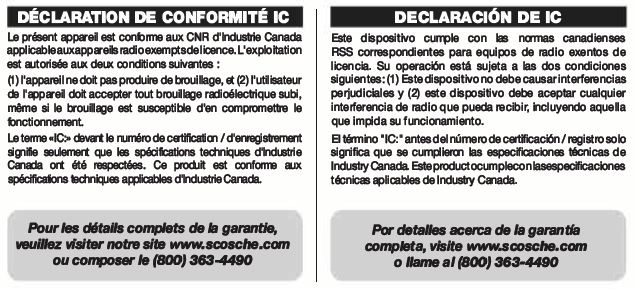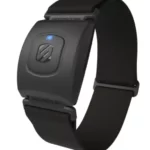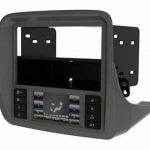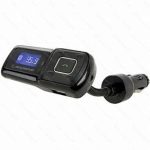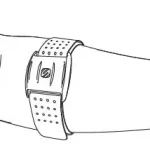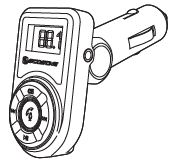

HANDS-FREE CAR KIT
WITH BLUETOOTH TRANSMITTER

PARTS INCLUDED
(1) Bluetooth receiver with FM transmitter
(1) Remote control
(1) 3.5mm AUX cable
Register your product online at www.scosche.com/register
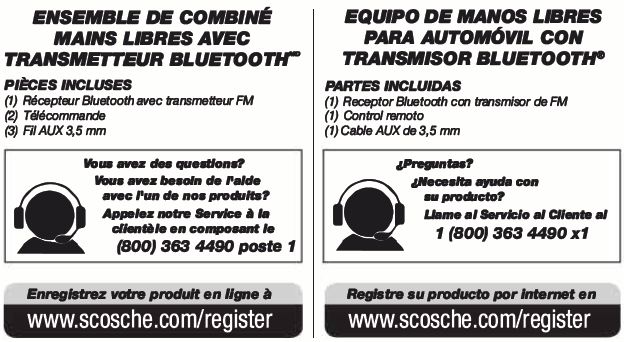
OVERVIEW
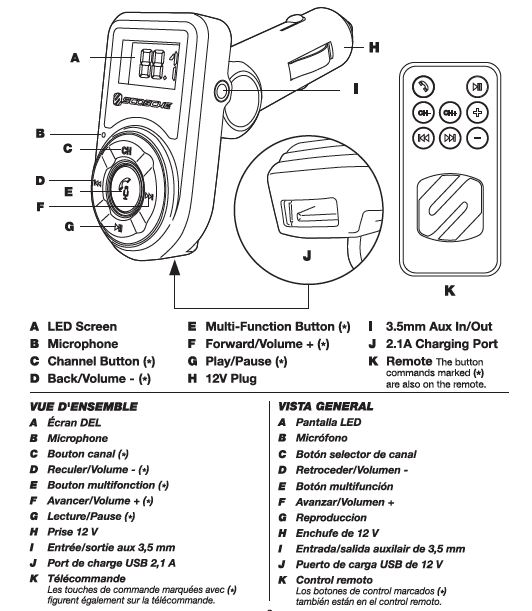
Features
- Bluetooth hands-free calling and music streaming
- USB charging port for charging mobile phones and other devices
- Auxiliary Input for use with other devices
- Wireless remote control
- Includes audio cable
SPECIFICATIONS:
A2DP 8/uetooth calling and audio streaming FM transmitter frequency range: 88.1 107.9MHZ
Input power: 12-24VDC
USB output: 5V at up to 2.1 amps (1 O watts)
Bluetooth is a registered trademark of Bluetooth SIG, Inc.
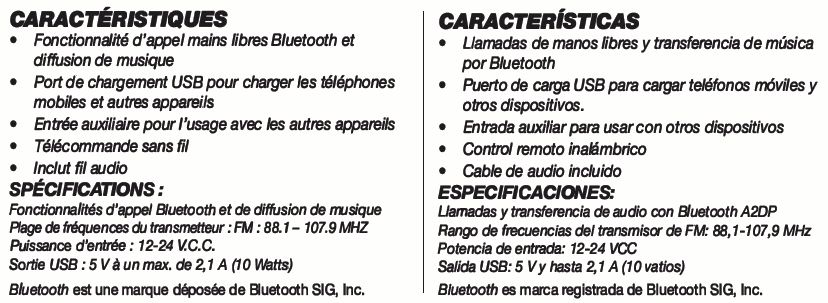
POWER UP and BLUETOOTH PAIRING
Follow these steps to power up and pair your BTFREQ to your mobile phone.
- Plug the BTFREQ into your cars 12V power socket.
- Wait for the Bluetooth indicator Oto flash.
- Access the Bluetooth menu on your mobile device, and enable the 8/uetooth function. From the list of available accessories find and select “Scosche BTFM3”.
- Your phone will confirm once it is connected, and the Bluetooth indicator will stop flashing.

CONNECTING TO YOUR CAR’S STEREO
There are two options for connecting the BTFREQ to your car stereo.
FM RADIO (option 1)
The BTFREQ has a small FM radio transmitter that can broadcast to your car’s stereo.
- Find a weak station on your FM radio that has no active broadcast signal.
- Use the CH, then the Forward and Back buttons to tune the BTFREQ to match the frequency of your FM radio.
- If you experience interference you may have entered an area where there is an active broadcast signal on the station you are tuned to. Repeat the above steps to find a different clear station.
AUX OUT (option 2)
If your car stereo includes an AUX port you can use the BTFREQ’s AUX out feature.
- Connect the included audio cable from the AUX IN/OUT port on the BTFREQ to the AUX port in your stereo.
- Set your car stereo source to AUX. Consult your vehicle owners manual if you are not sure how.
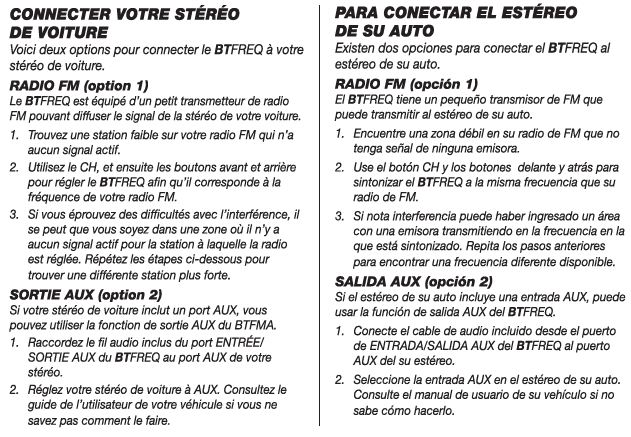
USING THE BTFREQ
Once you have paired the BTFREQ to your phone (see Power up and Pairing section) and have connected the BTFREQ to your stereo (see page 4) you can begin using your BTFREQ.
STREAMING MUSIC
1. Stream music by using the music player on your phone.
2. You can use the controls on the BTFREQ to play, pause and change tracks.
MAKING AND RECEIVING PHONE CALLS
Making a call
- Use your mobile phone to make a call as you normally would. Phone call audio will automatically stream through the BTFREQ.
- When you are finished talking, press the Multi-function button to hang up.
- To call the last number dialed you can press the Multi-function button.
Receiving a call
- Press the Multi-function button once to receive a call.
- Press the Multi-function button once to end the call.
Voice assistant activation
Press and hold the Multi-function button for 3 seconds to activate your smartphone’s voice assistant.
Voice answer/decline call
Speak your response on an incoming phone call. Say “YES” to receive a call, or “NO” to decline a call.
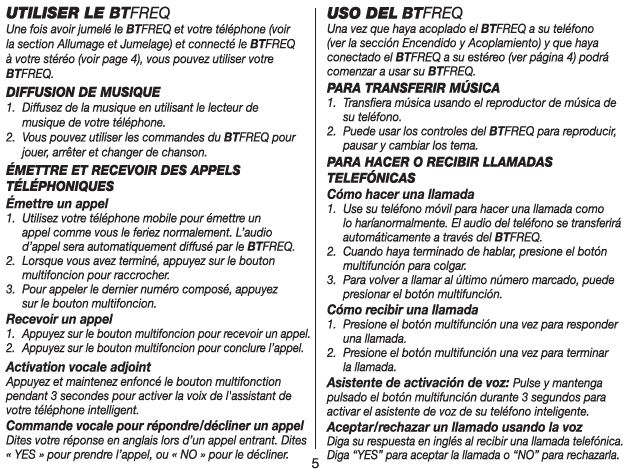
USB CHARGER
Your BTFREQ includes a 2.1A USB charging port to charge your phone while driving. Simply connect using a cable suitable for your device (not included).
WIRELESS REMOTE
The wireless remote can be used for many of the same functions as the controls on the
BTFREQ (see page 2).
OPTIONAL AUX IN CONNECTION FOR NON-BLUETOOTH DEVICES
Mobile devices without Bluetooth can be connected to the BTFREQ through the AUX IN/OUT port using the included audio cable.
VOLUME LEVEL MATCHING
Press and hold the Forward or Back buttons during MP3 playback to adjust the BTFREQ volume to match other sources like your CD player, or FM radio.
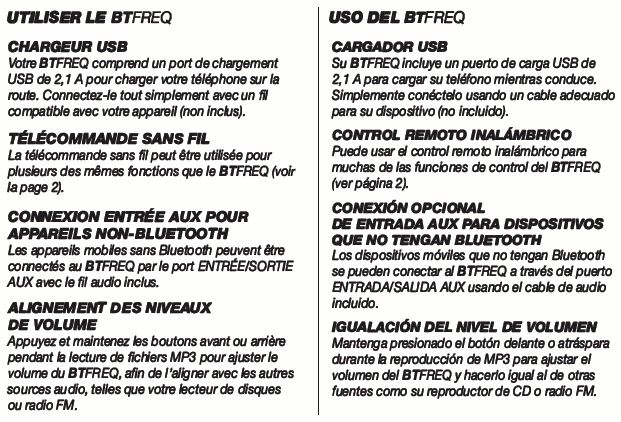
FCC STATEMENT
FCC STATEMENT
This device complies with Part 15 of the FCC Rules. Operation is subject to the following two conditions: (1) This device may not cause harmful interference, and (2) this device must accept any inter1erence received, including interference that may cause undesired
operation. This transmitter must not be co-located or operating in conjunction with any other antenna or transmitter. Changes or modifications not expressly approved by the party responsible for compliance could void the user’s authority to operate the equipment.
This equipment has been tested and found to comply with the limits for a Class B digital device, pursuant to Part 15 of the FCC Rules. These limits are designed to provide reasonable protection against harmful interference in a residential installation. This equipment generates uses and can radiate radio frequency energy and, if not installed and used in accordance with the instructions, may cause harmful interference to radio communications. However, there is no guarantee that interference will not occur in a particular installation. If this equipment does cause harmful interference to radio or television reception, which can be determined by turning the equipment off and on, the user is encouraged to try to correct the interference by one or more of the following measures:
- Reorient or relocate the receiving antenna.
- Increase the separation between the equipment and receiver.
- Connect the equipment into an outlet on a circuit different from that to which the receiver is connected.
- Consult the dealer or an experienced radio/TV technician for help.
Radiation Exposure Statement: The product complies with the FCC/IC RF Exposure for Low Power Consumer Wireless Power Transfer. RF exposure limit set forth for an uncontrolled environment and are safe for intended operation as described in this manual. The further RF exposure that compliance was demonstrated at 10cm and greater separation from the user body or set the device to lower output power if such function is available.
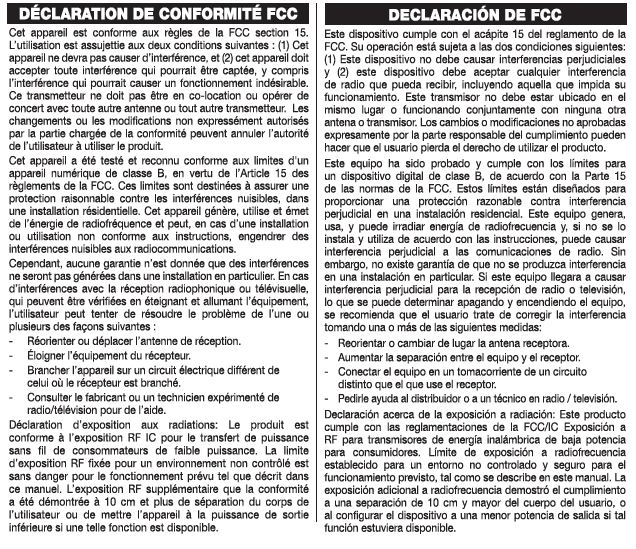
IC STATEMENT
This device complies with Industry Canada’s license-exempt RSSs. Operation is subject to the following two conditions:
- This device may not cause interference; and
- This device must accept any interference, induding interference that may cause undesired operation of the device.
The tenn “IC:” before the certification/registration number only signffies that the Industry Canada technical specifications were met. This product meets the applicable Industry Canada technical specifications.
For complete warranty details, please visit us at www.scosche.com or call (800) 363-4490
